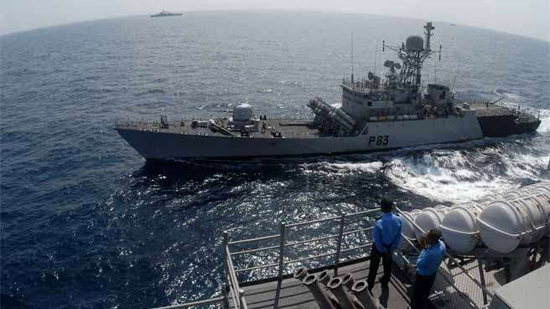![]()

Kochi, Aug 12: India today launched its first indigenous aircraft carrier INS Vikrant, joining the elite club of nations with the capability of designing and building a warship of this size and capability.
Defence Minister A K Antony's wife Elizabeth launched the 37,500-tonne carrier at Kochi shipyard almost four-and-a-half years after its keel was laid by the minister.
"It is a red-letter day for the entire nation and a proud moment for the country which has achieved self-reliance in the field of warship design and construction. Only a few advanced countries have capability to design and build such aircraft carriers," he said in his speech on the occasion.
Antony said this was an "important" first step towards a long journey in the area of warship building for the country. Other nations capable of designing and building a ship of equivalent size are the US, the UK, Russia and France.
The Minister said the Navy's capabilities must be enhanced to ensure that it maintains "high operational preparedness to thwart any likely misadventure against our national interest."
He asked all stakeholders including the builder Cochin Shipyards Limited (CSL) to put collective efforts to ensure that the aircraft carrier is delivered on time, observing that many years were lost in the past due to "lack of coordination".
The launch of warship, which has a length of 260 metres and is 60 metres wide, is behind schedule by three years. It is set to go for extensive trials in 2016 before being inducted into the Navy by 2018 end.
Fighter aircraft--Mig-29K, Light Combat Aircraft and Kamov-31 helicopters--will deployed on board the carrier which will also carry an array of other weapons systems.
INS Vikrant is the second aircraft carrier of the same name. Its predecessor was decommissioned in 1997 after having played a significant role in the 1971 war with Pakistan.
India is currently operating one aircraft carrier INS Viraat, which is likely to be decommissioned in 2018-19 after INS Vikrant joins operational service.
The country is expected to get its second aircraft carrier Admiral Gorshkov, now rechristened INS Vikramaditya, from Russia by the end of this year.
India has plans of having at least two aircraft carriers for its eastern and western sea boards and has plans of building more aircraft carriers indigenously, which would be bigger in size than the one launched today.
INS Vikrant's launch will mark the end of the first phase of its construction and it will be now re-docked for outfitting and construction of superstructure.
Antony said the Defence Ministry was ready to provide more support to the Cochin Shipyards Limited (CSL) provided it worked towards adhering to the timelines.
Apart from domestic design and manufacturing work, it is the high-grade warship steel made by the Steel Authority of India which has been used for building the ship.
The indigenous component in the warship would be approximately anywhere between 80 and 90 per cent in floating department, up to 60 per cent in movement and not more than 30 per cent in fighting component of the carrier.
The ship has been designed by Directorate of Naval Design. Its production work had commenced in November 2006.






Comments
Add new comment